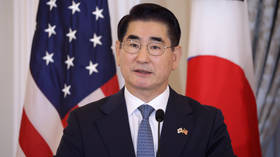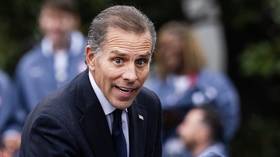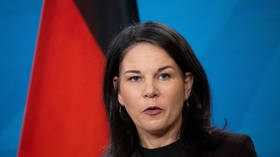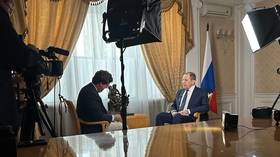Georgia violated UN charter – UN Assembly chief
Georgia commited an act of aggression and violated the UN charter by invading South Ossetia, the incoming President of the UN General Assembly said at the opening of its 63rd session.
Miguel D’Escoto Brockmann, a former foreign minister of Nicaragua, pledged in his opening address to the session to dedicate his year as president to representing the interests of “the dispossessed of the world” and fostering solidarity between peoples and member states.
“Georgia was the one who invaded Ossetia. Look at the situation, look at how the whole thing began. I think that Georgia did commit agression against South Ossetia,” said Brockmann.
Apart from Russia, Brockmann's native Nicaragua is the only country to so far formally recognise the independence of South Ossetia and Abkhazia.
Brockmann's election to the rotating presidency, as well as Nicaragua's recognition of the new republics has lately catapulted the South American country to the world stage.
Russia's ambassador to the UN Vitaly Churkin said Tbilisi has been asking international organisations not to offer humanitarian aid to South Ossetia if it doesn't become part of Georgia again.
“We mourn for the innocent deaths of everyone, regardless of their ethnic origin – peaceful Ossetians, Georgians and other people of that multi-national land,” Churkin said.
Churkin called for the United States to issue visas to officials from South Ossetia and Abkhazia so they can attend a Security Council meeting in early October.
The mandate of the UN observer mission in the Caucasus expires next month, and Russia has insisted its extension is impossible without hearing from all parties in the conflict.
RT documentary screened at UN
A special report by RT's Oksana Boyko entitled 'A City of Desolate Mothers', which investigates the aftermath of the war, was shown to the audience at a commemoration event.
An audience of more than 100 watched the Russian-sponsored screening. Representatives of European Union member states, however, did not show up to the viewing despite receiving two separate invitations.
“I leave very angered that this has happened and the coverage has been so one-sided and distorted. When I read the New York Times it always speaks of Georgian suffering, very little coverage of South Ossetians,” said Carla Stea, a New York based journalist.
International relations expert Mathew Russell Lee said he thought the documentary lacked balance, it presented facts he was unaware of.
“There's a piece of footage I've never seen before which was women in South Ossetia saying to Bernard Kouchner, the French Foreign Minister, laying it on strong, saying, 'They're killing us for no reason.' I wasn't aware that he went there. And I wasn't aware that he heard that. And he certainly hasn't said much about that,” Russell said.












